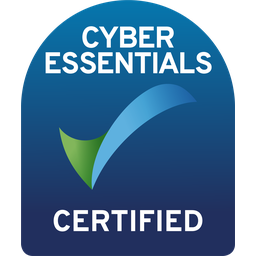So, what is the importance of blogging for purpose-driven businesses?
Blogging isn’t just about pushing products or services; it’s about telling authentic stories, sharing meaningful insights, and building connections based on shared values. For purpose-driven businesses, this becomes even more essential as they strive to engage an audience that is looking for transparency, accountability, and authenticity.
Let's get into it
Why Blogging Matters for Purpose-Driven Brands
Showcase Your Values
Building Trust
A key part of Google’s E-E-A-T principle involves creating trust around your brand. For purpose-driven businesses such as charities and B Corps, consumers are increasingly concerned with corporate integrity. Visitors to your website want to know who you are, what you’re actually doing, and if they trust you enough to part with money.
By sharing industry-relevant blogs with well-researched and authoritative content, you can help foster trust and credibility. This can lead to long-term relationships with clients, partners, and supporters.
And it won’t just impact your customers. This kind of activity can go a long way to helping your organic presence in Google, too.
What is E-E-A-T?
Improve SEO and Visibility
As mentioned above, Google is looking for E-E-A-T signals when ranking websites. These sit under expertise, experience, authority, and trust. It’s very hard to get all of these signals over on just your website alone.
Even if your business is fairly niche, visibility still matters, and blogging can help your business get found by people who are searching for solutions aligned with your values.
A well-constructed, people-first content strategy will:
Click below to expand
get it right
Blogging the right way for maximum impact
Consistent, sustainable communications
The importance of blogging only applies if you’re approaching it with sustainability in mind; from a planet perspective and from a business perspective. There’s no point getting stuck into a content strategy only for it to dry up and peter out after a few months. Users arriving on your website to see your last blog from three years ago isn’t going to inspire trust and may well undo some of your good work.
Regular, but well-thought-out and in-depth content, is far better than blogging twice a week and relying on company announcements or reposting news to fill the gaps.
Repurpose & reuse
Evaluate what you have
You might be sitting on a goldmine but never know it because you’ve not audited your existing content.
Conduct a thorough review of what’s performing on your website (we’’ve got a handy run-down of the process here) and cull what’s not performing.
Take time to improve those blogs or pages that have potential – they might be ranking, just not on page one, or they might be appearing for different keywords than the ones you originally targeted. Think about user intent and what they’re expecting from these blogs.
Website bloat will drag down your website carbon score and is generally bad for the environment, so ensuring that you’re producing consistent, quality content, whilst regularly reviewing what you already have so you’re not simply adding to the plethora of content already out there, will not only help get your message out there but also align with your own values.
Need some support?
We’ve got some free resources to help you get started, but if we’ve convinced you of the importance of blogging and you’re not sure where to start, we love helping purpose-driven businesses achieve their comms potential.






